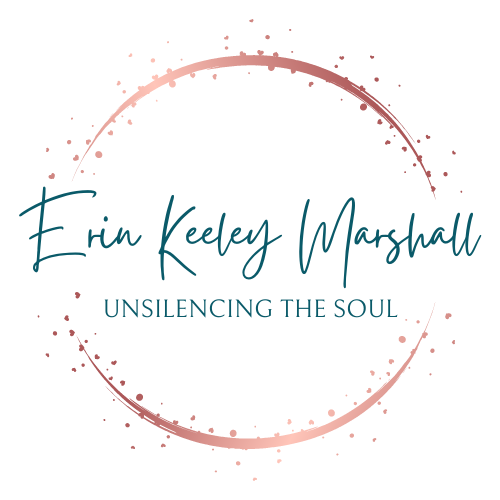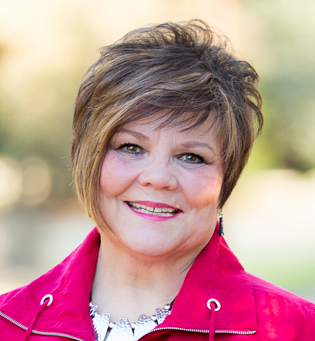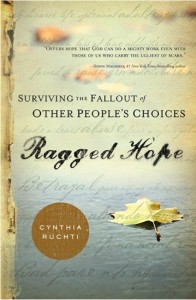Over the past month since The Hope of Heaven released on March 10, my thoughts have been stuck on the power of hope. Why do we crave it? Why do we need it? How do we hold on to it? The Hope of Heaven deals with important issues such as depression, suicide, faith, life after death, and holding on to hope when life fails us.
Fellow author Cynthia Ruchti understands the impact of hope. She is a gem whom I had the pleasure of meeting and even brainstorming with a couple of years ago at a retreat with our literary agency, Books & Such.
Cynthia values the healing power of hope so much that she even wrote about it in her book Ragged Hope: Surviving the Fallout of Other People’s Choices (Abingdon Press, 2013). Hope is even the theme of her author tagline, “Stories hemmed in Hope.”
Recently, I had a chance to ask her about the book. I wanted to know how it came about, where she found her stories, and why she focuses so much on hope. Here’s what she had to say:
Me: Why the theme of hope? Was your desire to focus on hope born from your own life or from ministry?
Cynthia: Hope shows up in everything I write–devotionals, blog posts, novels, novellas, nonfiction, notes to my grandkids’ teachers . . . In some ways, I suppose it could be said that I’m a hope-scavenger, looking for where it might be hiding in even the most desperate of situations, grateful when it’s lying right out there in the open, and happiest when I can serve as a hope tour guide for others.
Hope seems in short supply these days. From God’s perspective, the supply is as abundant and accessible as it’s ever been. But the ragged places of life–whether on the news reports, the doctor’s report, the financial report, or the repercussions felt in the family room–can distract us from hope’s reality.
No matter what I’ve written, my longing is for the reader to emerge from the experience with a courageous, “I can’t unravel. I’m hemmed in Hope.”
Me: Tell us more about the book. How long did you work on it? Who published it and when? How did you find the stories?
Cynthia: A book like Ragged Hope: Surviving the Fallout of Other People’s Choices lives in a writer’s heart for a long time before it reaches print form. Beginning back in my days of writing for radio, I kept my ears tuned to the needs of the people to whom the broadcast or speaking events ministered. As I listened, I heard beyond the sighs. Their stories touched me, moved me, and moved me even more profoundly when they were family members, friends, community members, from my own church home.
So many people live in the fallout ash of someone else’s bad decisions or wrong choices. Paying the price for someone else’s misdeed. My heart aches for them.
But I knew they represented so many others who bore either the same or a similar raggedness. I contracted the book Ragged Hope from a simple dinner discussion with an Abingdon editor, and then set to the work of trying to show where those shredded by the unthinking, unwise, or cruel decisions of others found hope in the midst of their fallout. Ragged Hope released in 2013. Another nonfiction with Abingdon Christian Living–Tattered and Mended: The Art of Healing the Wounded Soul–releases in July 2015. It takes that Ragged Hope concept a step further, showing how when God mends us, He does it artfully. When we’re hurting, He issues a divine invitation for us to mend. The result is art that blesses and inspires us and others.
Me: Which story or stories touched you most? Why?
Cynthia: Twenty-six stories lie among the pages of Ragged Hope. I could have included at least that many more. They all had an impact on me. Some of those stories remain unfinished. The survivors are still dealing with the consequences and will for many years. Some, for a lifetime.
Grandparents caring for their grandchildren because the parents are unfit or in rehab. People struggling to rebuild after a devastating and unnecessary loss. The spouses of the incarcerated. The bride who became a full-time caregiver because her groom drove drunk, wrapped his car around a tree, and resigned them both to a future centered around his paralysis. The widow whose financial planner wiped out her future. He didn’t steal her blind. she was legally blind before he stole from her.
I’d be hard pressed to say, “This story meant more to me than the others.” I cried for them all. But I also rejoiced when each of them found a holding-on place for hope. I have so much admiration for the way they moved forward despite the devastation to make a life out of what they had left. In their own ways, each found where hope was hiding in the fallout. It’s my prayer that readers will discover the same.
Me: How does God heal a person?
Cynthia: One of the great mysteries to unravel in eternity! What I’ve seen is that He heals suddenly and dramatically one time and quietly, slowly the next. He heals using the wisdom He planted in the minds of brilliant doctors and He heals with no doctor present. He heals by removing the offending disease or heartache, but He also heals by infusing remarkable strength into the person whose disease or heartache remains. Who would say the amputee who learns to walk and run on artificial limbs is not divinely healed . . . and healing–in the process of it emotionally as well as physically every day?
I don’t want to minimize the wonder of heaven as the ultimate healing. Jesus came to purchase our healing for us. Those who trust Him are all healed. If not here, in these earthly bodies that even if physically or emotionally healed will eventually die, then in an even more spectacular way when we see Jesus face to face.
Me: What would you say to someone who says her pain is unique?
Cynthia: I would agree with her. Everyone’s pain is unique, because it’s affected by our personalities, our personal histories, our current circumstances, our pain tolerance, our support team or lack of it, and where we are in our faith journey.
The Bible says that God is well-acquainted with our griefs and sorrows (Isaiah 53:3). He’s familiar with our pain. We’re also told that He numbers the very hairs of our head. He’s THAT intimately acquainted with our individual distress.
We share common elements of pain with one another. But when I teach writers’ workshops on the subject, I map out layers of a person’s distress, depending on dozens of external and internal factors. That makes it all the more important for us to cling to the truth that God knows OUR pain. Not just pain, but OUR pain. He’s not just The Healer, but Our Healer.
Me: How can we hold on to hope when life feels as if it has bottomed out?
Cynthia: In Ragged Hope, none of the individuals whose stories were told were any more gifted or privileged or accomplished or resilient than you and I can be. They didn’t trust in their tenacity, but trusted God would show them glimmers of hope if they kept holding on to Him. It’s not a matter of an optimistic attitude but of trusting a tenacious God who has tucked hope among the folds of our traumas.
Me: Any hints about your upcoming projects?
Cynthia: I’ve mentioned Tattered and Mended: The Art of Healing the Wounded Soul (Abingdon Christian Living), which releases in July. This fall, a Christmas novella titled An Endless Christmas releases from Worthy Publishing. It might sound like a complete departure for me to write a holiday novella, but this particular book is the kind that will draw you deeper into the true meaning of Christmas while entertaining with a family’s heart-tugging story.
Me: Thanks, Cynthia! Anything else you’d like to add?
Cynthia: Few things give me more joy than interacting with readers and potential readers. You can connect with me at www.cynthiaruchti.com or on Facebook (Cynthia Ruchti) or Twitter (@cynthiaruchti). Thank you for this time to share my heart. May your life be hemmed in Hope!


